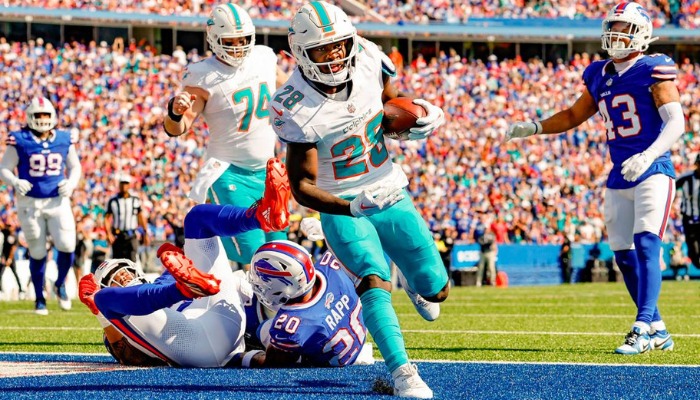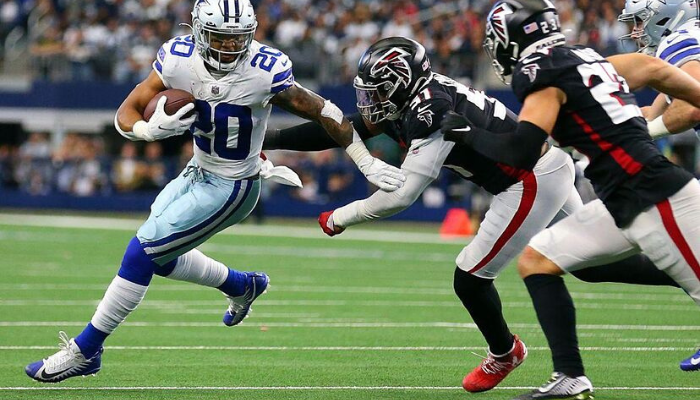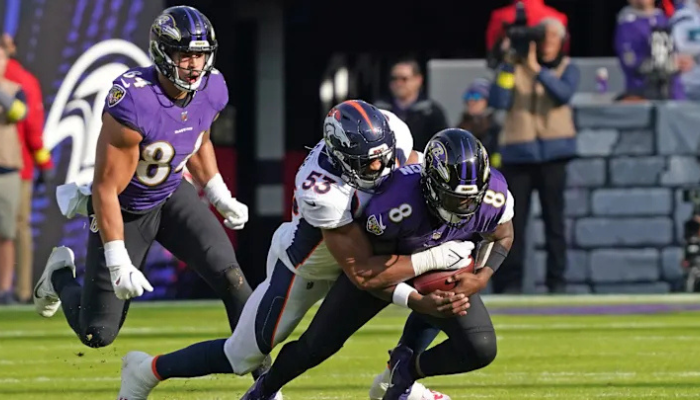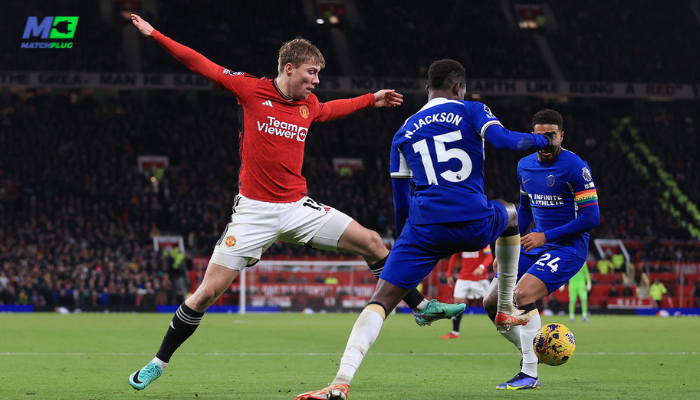Round two of Bills VS Dolphins will happen when the Buffalo Bills and the Miami Dolphins meet at the Highmark Stadium.
Find the NFL Betting tips, picks, odds, and analysis for Watch Bills VS Dolphins on MatchPlug. We have the previews for similar matches in this league.
Predictions And Betting Preview For Buffalo Bills VS Miami Dolphins
- Venue: Highmark Stadium.
- When: Sunday, November 3rd, 2024.
- Time: 19:00.
- Teams to play: Bills and Dolphins.
- NFL Expert Picks: SPREAD -5.5.
Odds provided by 1XBet.
Betting On The Buffalo Bills
- 1XBet Spread: -5.5
- 1XBet Over/Under: Over 49.5
- 1XBet Moneyline: 1.444
The Buffalo Bills begin this week four matches in front of the AFC East, courtesy of a three-match winning run. Their last two victories were over 20 points. Everything is right with the Bills, especially their offense that averages the fifth-most points per game; 28.8. Buffalo average 122.3 rushing per match with the eighth-most attempts in the league. Overall, their offense scored 5.8 yards per play (9th).
Defensively, Buffalo are hard to beat. In their last 7 matches, just two clubs have scored above 20 points against them. The Bills allow 18.3 points per game, the sixth-lowest in the NFL. They are also 6th in the takeaways with 14. Buffalo has 20 sacks. The defense has also found it easy to stop the pass. They hold opponents’ quarterbacks to 6.5 yards per attempt (5th).
Betting On The Miami Dolphins
- 1XBet Spread: +5.5
- 1XBet Over/Under: Under 49.5
- 1XBet Moneyline: 3.2
Tua Tagovailoa returned last week, which was good news for the Miami Dolphins who scored up to 20 points in both matches he played to completion. The Dolphins averaged 10.0 points per match in the other five. However, Miami ruined a nine-point lead in less than 10 minutes, failing 28-27 to the Arizona Cardinals.
The Dolphins conceded 22.4 points per game. This season’s squad tied for 26th in takeaways (5) and 30th in sacks (9). They are 13th in yards allowed per carry, 13th in yards permitted per pass attempt, and 14th in yards allowed per play. A trend that could help Miami today is that they limit opponents to 16.7 points per match on the road.
MatchPlug Prediction For Buffalo Bills VS Miami Dolphins
The Bills will score above 30 points like they have done at every home match this campaign. But the Dolphins offense won’t survive a strong Buffalo defense. Take the Bills against the spread.
Buffalo will score 30+ points like they have in every other home game this season. Miami’s offense won’t keep up against a tough Bills defense. Take Buffalo against the spread.
Final Prediction: Buffalo Bills -5.5.













